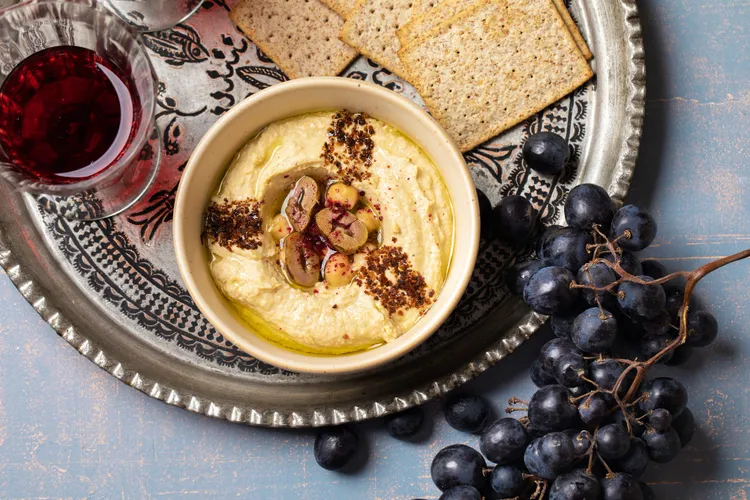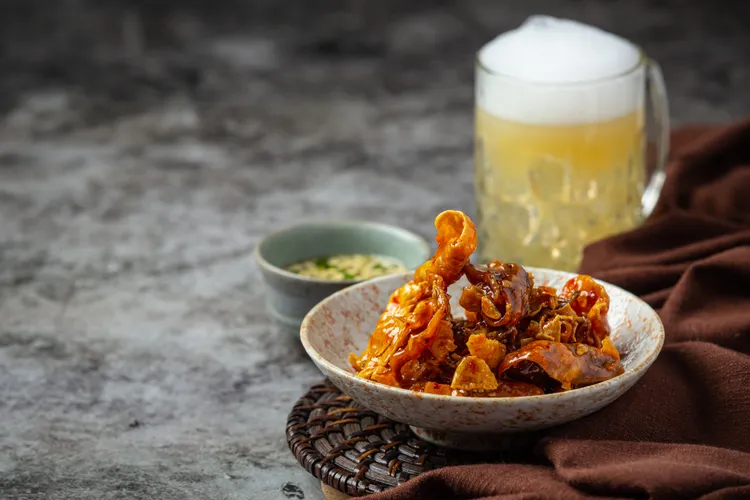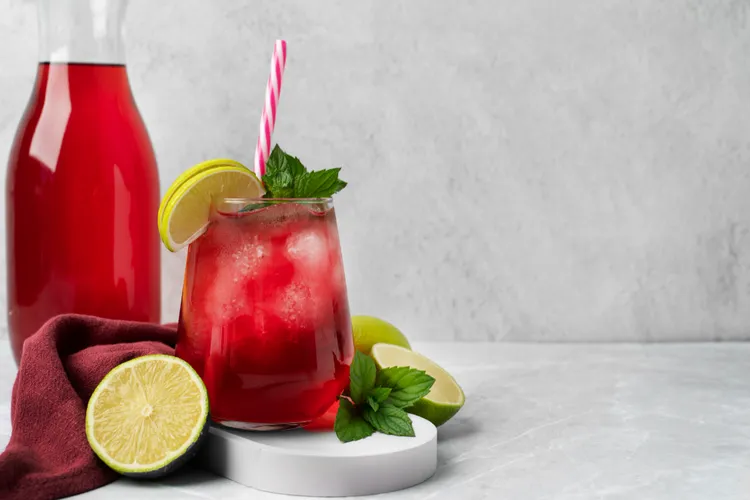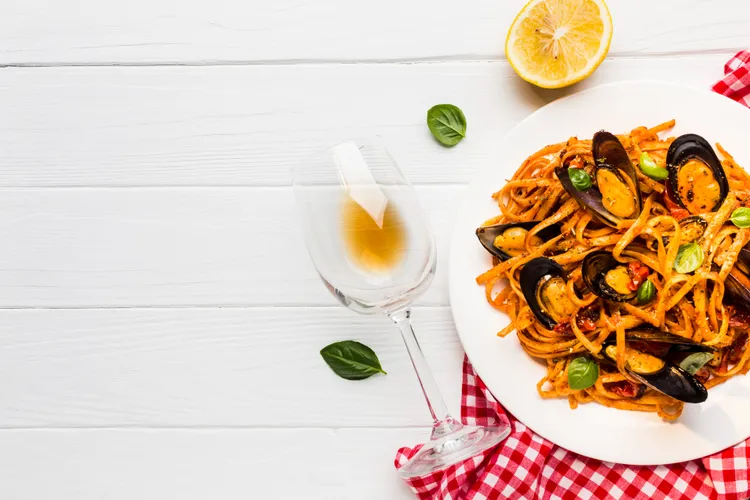Winter Wellness on a Plate: Top Foods to Eat During Cold & Flu Season
When colds start making the rounds, your immune system needs the right fuel to fight back. The foods you eat can either strengthen your natural defences or leave you more vulnerable to infection. That’s why eating nutrient-rich, anti-inflammatory meals is essential during the colder months. We break down the best immune-boosting foods for cold and flu season and share nutrition tips plus comforting recipes, that are easy to prepare and delicious to enjoy.
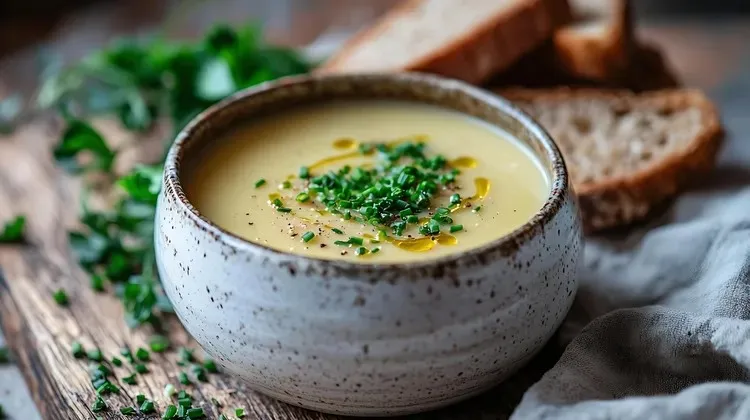
As the temperatures drop and the sniffles start to spread, what you put on your plate can make all the difference. During cold and flu season, nourishing your body with immune-supporting, healing foods is one of the most effective ways to stay strong and recover faster. We’ll explore the top foods to eat during cold and flu season - along with delicious recipes - to help you boost your immunity, soothe symptoms, and stay energized all winter long.
Why nutrition matters when you’re fighting a cold or the flu
When you get sick, whether with a common cold or something more serious like the flu, your body’s immune system is working overtime. It needs energy, fluid, antioxidants, vitamins and minerals, and foods that are easy to digest and gentle on your body. Some key things to know:
-
Warm broths and soups help with hydration and can thin mucus; they may also help with congestion.
-
Foods rich in vitamin C, zinc, selenium, vitamin E, and other antioxidants help your body fight infection and recover faster.
-
Foods that are very fatty, highly processed, or high in added sugar can be harder to digest, may fuel inflammation, and may prolong symptoms.
-
When your appetite is low (as often happens when ill), choosing nutrient-dense, easy-to-eat foods is key.
So the goal is: nourish + soothe + hydrate, rather than heavy meals or processed comfort food.
What to include on your “cold & flu” shopping list
Here’s a breakdown of the key types of foods to focus on, and why they matter.
1. Broths, soups & warm liquids
-
Chicken soup, vegetable broth or bone broth: Warm liquid, easy to digest, hydrating, may loosen mucus and reduce congestion.
-
Herbal teas (ginger tea, turmeric tea) and hot water with lemon/honey: These are soothing on sore throats and provide extra benefits from herbs/spices.
Tip: Keep a batch of home-made broth in the freezer so you have something comforting and nourishing on hand when you’re feeling under the weather.
2. Foods rich in vitamin C & antioxidants
-
Citrus fruits (oranges, lemons, limes); kiwi; berries; peppers; broccoli.
-
Leafy greens (spinach, kale) which also add extra nutrients.
-
These foods help boost your immune defences (white blood cells etc) and help reduce inflammation.
Tip: If your appetite is low, blend a smoothie with berries + spinach + a bit of Greek yoghurt (for protein) for a quick nutrient boost.
3. Good sources of zinc, selenium, vitamin E
-
Zinc: chicken, lean meats, beans, whole grains, nuts.
-
Selenium: seafood, eggs, dairy, beans, nuts.
-
Vitamin E: nuts, seeds, leafy greens, oils.
Tip: One simple dinner idea: roasted chicken (for zinc) with almonds sprinkled over a spinach salad.
4. Anti-inflammatory / immune-support spices & herbs
-
Garlic has antiviral/immune boosting potential.
-
Ginger and turmeric help reduce inflammation and soothe discomfort.
Tip: Add minced garlic + grated ginger into soups or stir-fries when you’re noticing the first scratchy throat.
5. Foods easy on the stomach
When your appetite is diminished, or you have nausea/flu symptoms:
-
Bananas, toast, plain rice, applesauce (the BRAT diet) are easier to tolerate, though less nutrient-dense.
-
Yogurt with live cultures: supports gut health, which in turn supports immunity.
Foods & habits to avoid or minimise
While focusing on what to include is key, it’s also helpful to know what to minimise during cold & flu season:
-
Avoid heavy fried foods, greasy fast-food, large high-fat meals: they’re harder to digest and may burden your system.
-
Avoid excess added sugar and processed foods: they can increase inflammation and reduce immune efficiency.
-
Reduce alcohol and excessive caffeine: alcohol can dehydrate and weaken immune function; caffeine can interfere with rest/hydration.
Recipes perfect for cold season
Here are some actual recipes that align beautifully with the above principles. You can plug these in when you’re feeling under the weather (or want to prevent feeling under the weather).
Chicken Soup
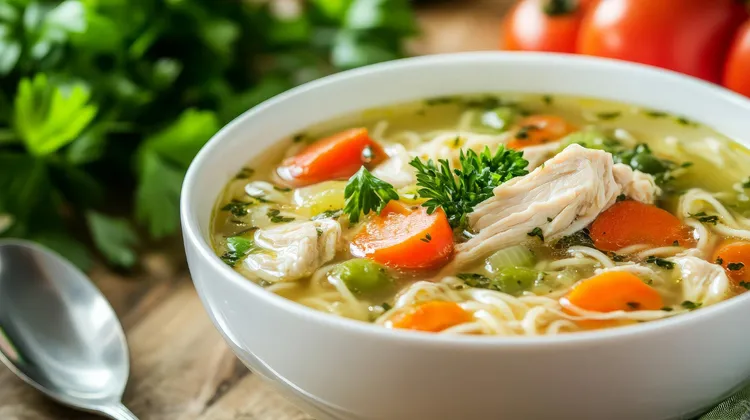
Why it fits: Warm, comforting, nutrient-dense. Includes lean protein (chicken), vegetables for vitamins/minerals, broth for hydration/soothing.
How to customise for cold/flu season: Add extra garlic and ginger, toss in some leafy greens (spinach) near end of cooking to boost vitamin C. Serve hot, maybe with a squeeze of lemon for added brightness.
Mango, Kale and Blueberry Smoothie
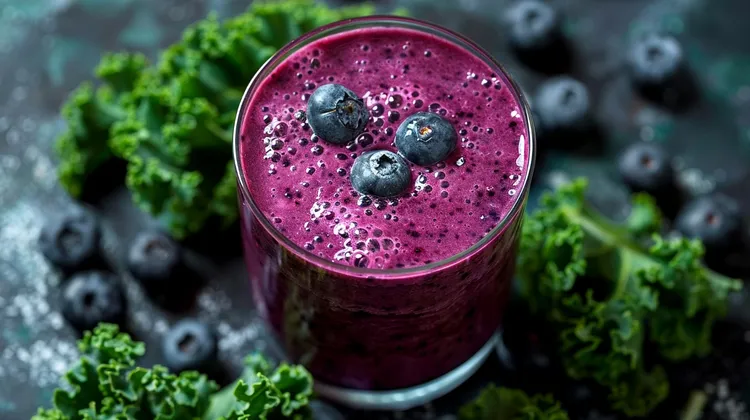
Why it fits: Smoothies are a great choice when your appetite is low. This one is loaded with vitamin C (mango & blueberries), leafy greens for extra nutrients, and easy to digest.
Tip: Serve it in smaller amounts if you’re feeling unwell. Add a scoop of Greek yoghurt for protein and a teaspoon of honey if your throat’s sore.
Smoked salmon and broccoli soup
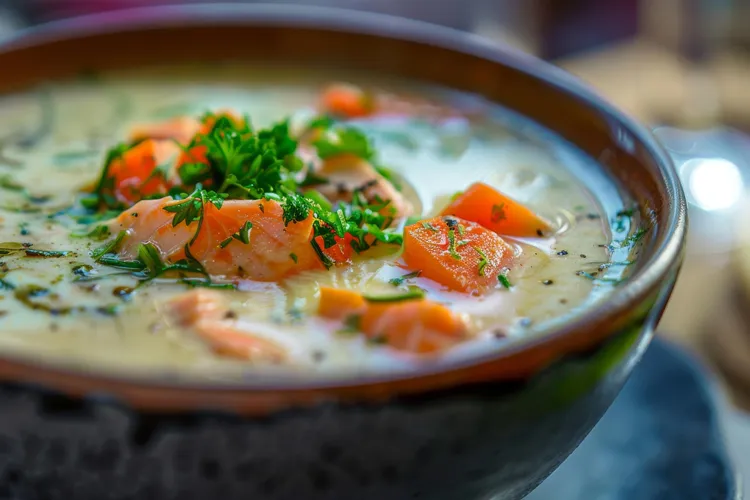
Smoked salmon + broccoli + leeks: nutrient-dense, warm and comforting.
Why it helps: Omega-3s (salmon), vitamin C & K from broccoli, warm which soothes throat and helps hydration.
Potato and Leek Soup
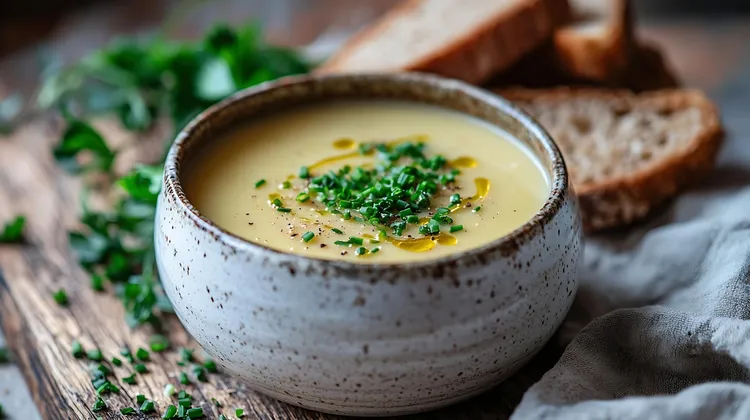
A classic comfort soup: leeks, garlic, potatoes in savoury broth.
Why it helps: Easy to digest, warm liquid, gentle but satisfying when appetite is low.
Kale and Tomato Soup
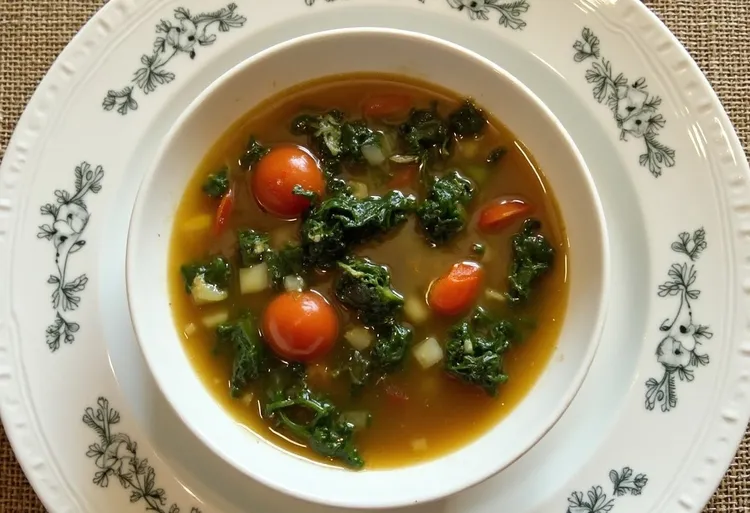
Relatively light but packed with nutrients: kale + cherry tomatoes + broth.
Why it helps: Leafy greens for micronutrients, broth for hydration, lighter for when heavy meals feel like too much.
Cherry Banana Smoothie
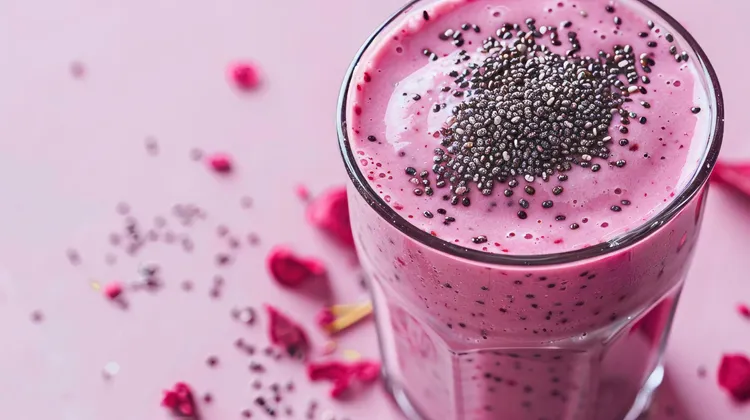
Blend of banana, cherries, orange juice, Greek yogurt, seeds.
Why it helps: Great when you don’t feel like cooking; easy to sip; vitamins + protein.
Pomegranate, Blueberry and Spinach Smoothie
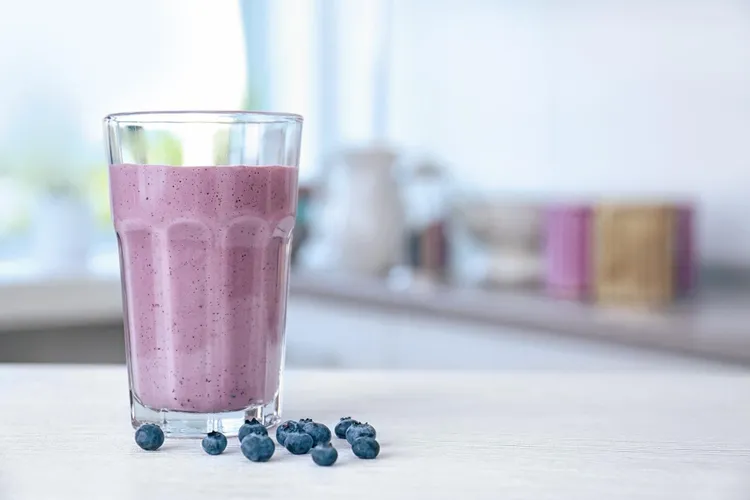
Frozen blueberries, banana, spinach, pomegranate juice, almond milk, chia seeds.
Why it helps: High antioxidant load (help with immune support), nutrient dense and easy to drink.
Coconut Pineapple Orange Smoothie

Coconut milk, oranges, banana, pineapple, Greek yogurt.
Why it helps: Citrus for vitamin C, tropical flavour to lift mood, good when you need flavour + comfort.
Berry Grapefruit Smoothie

Frozen strawberries & raspberries, grapefruit, spearmint.
Why it helps: Refreshing, lots of vitamin C & antioxidants, helps with hydration and taste when you’re a little off.
Pumpkin and capsicum soup
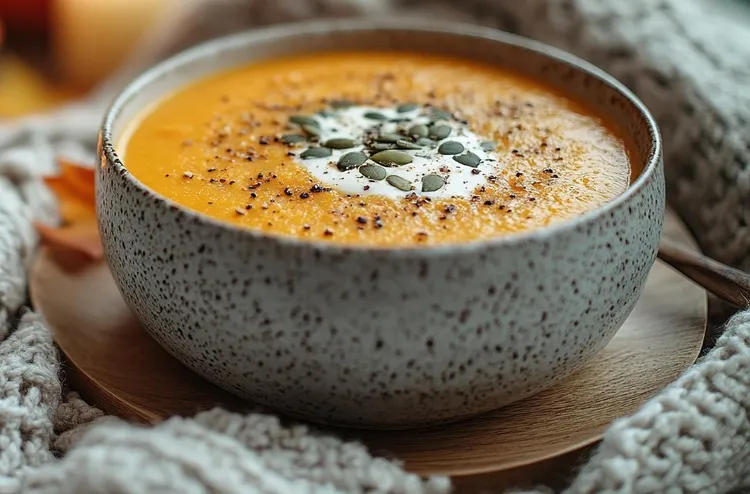
Combination of pumpkin (rich in beta-carotene/vitamin A), red pepper (vitamin C), canned tomatoes and gravy/broth.
Tip: Great for a lighter meal when you want something warming but not too heavy.
6 Quick Tips to Maximize Your Nutrition During Cold/Flu Season
-
Stock your freezer with prepared broths/soups so you’re not stuck when you don’t feel like cooking.
-
Chop garlic & ginger in advance and freeze in small bags so you can easily add them to meals.
-
Keep citrus and berries handy (fresh or frozen). If you get sick, you’ll still want those vitamin-C sources.
-
Hydrate: Warm fluids, herbal teas, broths help - not just for comfort but function (mucus, nasal passages, hydration).
-
Watch for appetite changes: When you’re ill, even small amounts of nutrient-dense food count.
-
Balance: These foods support you, but they don’t replace medical care. If you have high fever, chest pain, shortness of breath or underlying conditions - see a healthcare professional.
There’s no magic food that will stop you from getting a cold or flu - but by selecting smart, nourishing, comforting foods, you can give your body a better chance of staying strong, recovering quicker, and feeling a little more comfortable while you’re under the weather.
Stay warm, stay nourished!




